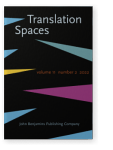Vol. 11:2 (2022) ► pp.303–328
US voter rights in translation
Semantic shifts in Spanish renderings of “felony”
Felons’ voting rights have featured prominently in debates over voter suppression in the United States, particularly in Florida, where a 2018 state constitutional amendment reinstated voting rights to the state’s 1.4 million former felons (Robles 2018). Florida also has a high concentration of Spanish-speaking voters with Limited English Proficiency (LEP), making Spanish-language voting information crucial. Inadequate translations of voter information may misrepresent voter eligibility for LEP Spanish-speaking former felons in Florida. Using a parallel corpus, this article’s central research question investigates how semantic shifts occur in Spanish translations of “felony” and “felon” in online voter information for seven Florida counties. The results reveal a number of misrepresentative semantic shifts in both human- and machine-translated Spanish voter information. Such shifts may impinge on individuals’ constitutional rights.
Article outline
- 1.Introduction
- 2.Related work
- 3.Methods
- 3.1Text selection
- 3.2Corpus compilation
- 3.3Corpus analysis
- 4.Legal comparative analysis of potential renderings
- 5.Results
- 5.1Semantic shifts by term and county
- 5.2Semantic shifts in human vs. machine translation
- 6.Discussion
- 7.Conclusion
- Notes
-
References -
Legislation
